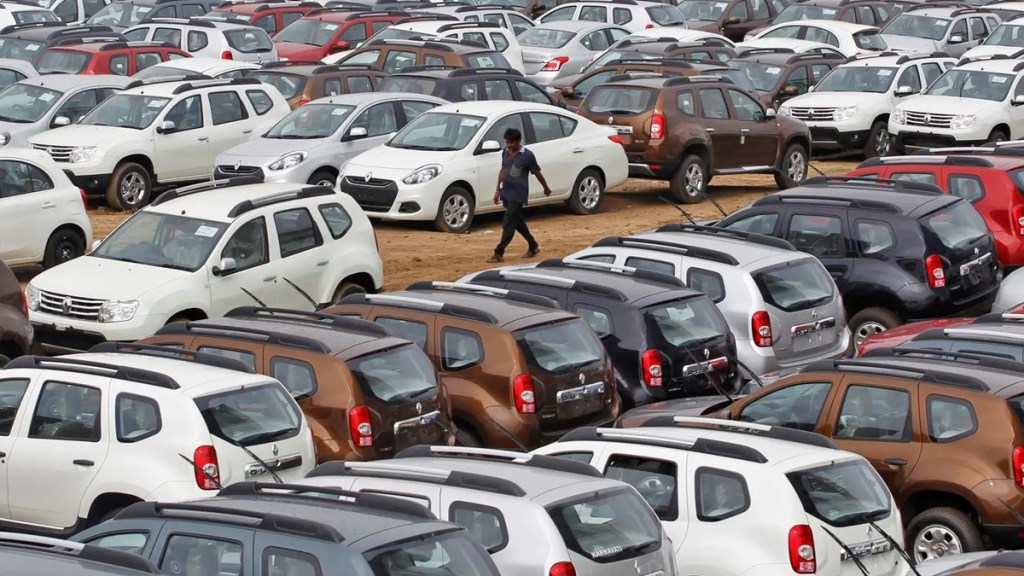Automakers are reportedly forcing dealers into buying models that have relatively lower demand pull, leading to a rise in stock levels. This comes at a time when the slowdown in retail demand continues to hurt the industry.
This mismatch in supply and demand led to an increase in stock with the dealers by 2-55 days in June compared to May, said CS Vigneshwar, president, Federation of Automobile Dealers Associations (FADA), the apex lobby body of automotive dealers in the country.
“The OEMs (original equipment manufacturers) force dealers to pick up vehicles that are not in demand. The dealers don’t want such vehicles and neither does the customer. Then these are sold at a discount,” Vigneshwar added.
There was an estimated net addition of 15,000-18,000 units in June to the overall inventory of around 600,000 units. While wholesales (manufacturers to dealers) in June is estimated to have stood around 315,000-318,000, the retails (dealers to customers) stood at 297,722 units.
Some dealers indicated that certain passenger vehicle OEMs have introduced compulsory billing procedures—such as automatic wholesale debits—to meet volume targets; inventory consequently stands at around 55 days, FADA said in a statement.
Heavy rains and tight market liquidity weighed on footfall and conversion, even as elevated incentive schemes and fresh bookings lent selective support during June.
Though there was anxiety expressed by the auto industry in the earlier months regarding non-availability of permanent magnets hurting production, there has been no impact of this at the retail level.
“SIAM in May said the industry would be running out of stock of permanent magnets by May-June. We are in July and still no OEM has come to dealers to warn them about any particular model going out of stock,” Vigneshwar said.
Hyundai, Kia and Tata Motors had earlier reported sufficient stock of permanent magnets. Maruti Suzuki has said its own stock of magnets is sufficient to last till the end of July. Though each of these automakers have reported a fall in June despatches, none has blamed it on a disruption of the supply chain.
“Most passenger vehicle OEMs, except M&M (Mahindra & Mahindra), saw lower despatches due to soft demand amid seasonality and inventory adjustments as retail dispatches were flat year-on-year (y-o-y),” said a BNP Paribas report.
Meanwhile, auto retail sales rose around 5% y-o-y in June with all vehicle segments, including passenger vehicles (PVs) and two-wheelers, witnessing growth, FADA data showed.
Overall, automobile registrations stood at 2,003,873 units last month, up 4.84% compared with 1,911,354 units in June 2024.

